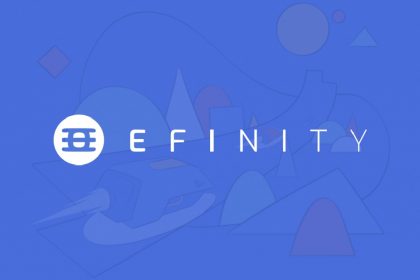The Efinity blockchain has its own native Efinity Token (EFI) and now it will focus on non-fungible tokens (NFTs) for apps, creators, games, and enterprises.
Riding on the NFT wave, blockchain companies are raising massive funding with a focus on NFT development. On Wednesday, March 31st, Enjin, the Singapore-based blockchain software solutions provider, raised a massive $19 million. Enjin announced that it shall use this fundraise to build its own Polkadot-based blockchain network Efinity. Also, Efinity shall be the first decentralized blockchain exclusively focused on non-fungible tokens (NFTs) for apps, creators, games, and enterprises.
Crypto.com, DEG Group and Hashed led this funding round. However, there were other prominent names like Arrington XRP Capital, Blockchain.com, BlockTower, DeFi Alliance and others.
Efinity and NFTs
Enjin has been working in the NFT space for quite some time now. Back in 2017, Enjin created the ERC-1155 standard for NFTs. Interestingly, this standard has also been used by Microsoft and Nike. While Microsoft used ERC-1155 to reward its Azure developer community, Nike used it to patent a system for tokenizing shoes on Ethereum.
However, the thing with Enjin’s Efinity is that it will solely focus on NFTs developments. Speaking to The Block, Enjin CTO Witek Radomski said that Efinity will have its own Efinity Token (EFI). Also, Enjin secured recent funding by selling its EFT tokens.
Efinity will Solve Issues of Ethereum and Flow Blockchain
Radomski said that Efinity aims to solve some of the friction points that developers and users face with Ethereum and Dapper Labs’ Flow blockchain networks. The Ethereum-based ERC-720 NFTs face multiple issues as of now. This includes “transaction fees, the requirement of ether (ETH), account security, disjointed applications, problematic multisig security” said Radomski.
Although Flow blockchain addresses some of the issues, Radomski points out they have built the blockchain from scratch using their own scripting language. This according to Radomski can pose certain challenges. He further added:
“Flow may see challenges if they aren’t able to attract enough nodes to become sufficiently decentralized, and they might also face an uphill battle convincing developers to learn their proprietary language. On Efinity and Polkadot, developers can use Rust which is a well-established language, and every parachain will benefit from the combined security of the entire Polkadot network. Finally, each parachain can easily interact with other parachains using XCMP [Cross-chain Message Passing], which creates a powerful network effect”.
Efinity’s Phase 1 launch will happen around the end of this year or by the beginning of 2022. “After that point, we will continue our roadmap, adding more planned functionality to the blockchain through upgrades and decentralized governance,” he said.
Read more blockchain news on Coinspeaker.
next